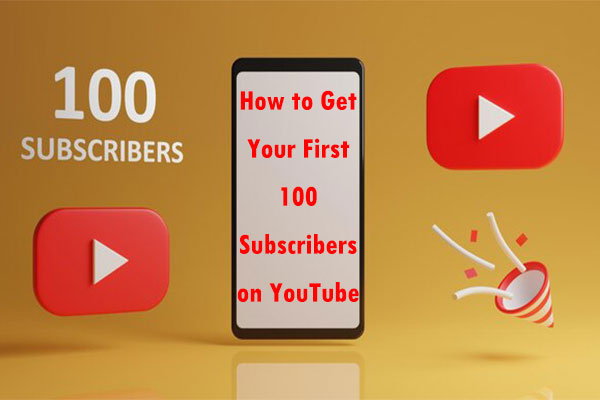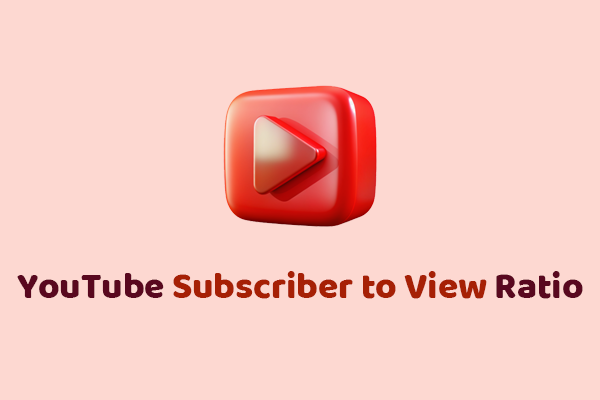Growing a YouTube channel is hard work. It takes consistency, creativity, and strategy to build a loyal audience. But in a rush to gain popularity or impress potential sponsors, some creators (or third-party services) have begun buying fake subscribers — bots or inactive accounts that don’t engage with content. While the number may look good on the surface, fake subscribers can actually harm your channel’s performance, reputation, and monetization potential.
Whether you’re a content creator looking to maintain integrity or a brand evaluating influencers for partnerships, it’s essential to know how to spot fake YouTube subscribers. Read on to learn useful strategies for doing this easily.
MiniTool Video ConverterClick to Download100%Clean & Safe
Why Fake Subscribers on YouTube Are a Problem
Fake subscribers are often generated by bots or purchased from shady websites. These subscribers don’t watch your videos, don’t comment, and certainly won’t become loyal fans. Here’s why fake subscribers are harmful:
- Damage to Engagement Rate: YouTube prioritizes videos with high engagement (likes, comments, watch time). If you have thousands of fake subscribers but few interactions, the algorithm sees your content as low-value.
- Channel Demonetization: YouTube’s Partner Program requires genuine engagement. If they detect suspicious activity, your channel could be flagged or removed from monetization.
- Loss of Credibility: Brands and real viewers can usually tell when a channel’s audience isn’t authentic. This hurts sponsorship opportunities and trust.
- Violation of YouTube’s Terms: Buying subscribers is against YouTube’s policies and can lead to penalties or channel termination.
How to Spot Fake YouTube Subscribers
Spotting fake subscribers isn’t always easy, especially at a glance, but there are several analytical methods to help you tell the difference.
1. Unusual Spike in Subscribers
If a channel gains a massive number of subscribers overnight without a viral video, that’s a red flag.
What to Look For:
- Rapid spike in subscribers within hours or a day.
- No corresponding increase in views, likes, or comments.
- No trending videos or external buzz.
In such a case, you can use YouTube’s advanced mode in Analytics to track subscriber growth over time. Consistent organic growth should look like a slope, not a spike.

2. Low Engagement Rate
Another characteristic of fake YouTube subscribers is a low engagement rate. For example, a channel with 10,000+ subscribers but only 100 views or 5 comments per video likely has a fake or inactive audience.
So, if you’re suspicious of a channel, you can compare its views to the subscriber count. If there’s a big mismatch, especially across many videos, there’s a problem.
3. Generic or Spammy Comments
Fake subscribers often come with bot-generated comments: short, meaningless, and often repeated across channels. In contrast, genuine viewers leave thoughtful feedback, ask questions, or reference specific parts of the video. For instance, comments such as “Nice video,” “Cool,” or “Sub back?” from accounts without a profile photo, those with only 1-2 subscribers, or accounts that post the same comment on multiple videos are likely from fake subscribers.
4. Suspicious Subscriber Profiles
Many fake subscribers are empty or abandoned accounts created solely for inflating numbers. Their accounts often have no uploads, playlists, or profile customization. You can manually check your recent subscribers under YouTube Studio > Analytics > Recent Subscribers (only shows public accounts).
5. Low Watch Time and Audience Retention
Fake subscribers don’t watch your videos, which results in poor performance metrics. If the total viewing minutes of your content are low, or most viewers leave after 5-10 seconds, they’re likely not real fans. Real audiences have a natural retention curve based on their interest in your content.
6. Third-Party Analytics Tools
Finally, instead of manually detecting YouTube fake subscribers, you can utilize some third-party analytics tools. There are several online platforms, such as Social Blade and Noxinfluencer, that can help you analyze YouTube channels for fake subscribers automatically. These tools aren’t perfect, but they’re great for quick insights when it comes to detecting fake YouTube subscribers on your own channel or others.
Conclusion
While fake YouTube subscribers may make your channel’s subscriber count look impressive, they can negatively impact your channel’s performance, credibility, and reputation. Therefore, it’s important for content creators to detect these fake subscribers. Here are some effective methods to help you spot fake YouTube subscribers easily!



